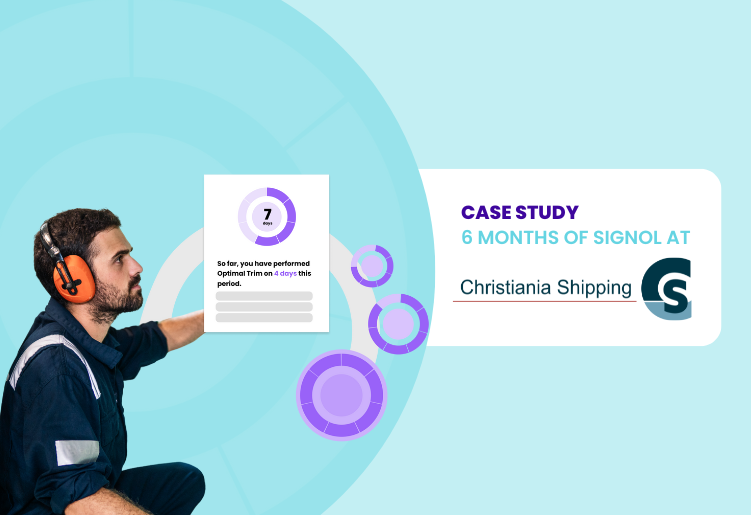Maritime
Enabling further carbon reduction
Empower your crew to go one step further to save fuel
7
days
So far, you have performed EMO on 4 days this period.
Signol is a cutting edge behaviour change service, using a data led approach, that engages each seafarer to complete the most impactful actions to reduce fuel, and instills a regular cadence of communication with the crew, without burdening the management team.
Empower your crew to go one step further to save fuel
Save fuel. Signol consistently delivers x10 ROI
Save fuel. Signol consistently delivers x10 ROI
Focus crew on achieving goals that have the most substantial outcomes with no infrastructure investment.
Make significant inroads into reducing carbon emissions
Make significant inroads into reducing carbon emissions
Meet rigorous carbon reduction targets, whilst seeing a holistic picture of carbon savings achieved.
Drive data reliability & process automation
Drive data reliability & process automation
Get clear evidence of fuel efficiency improvements, and assistance implementing and evaluating decarbonization and performance optimization initiatives.
Improves off and on shore communication
Signol instils a regular communication cadence between shoreside and seafarers.
Minimal internet connectivity required
Our platform delivers recommendations and insights in bite sized emails and requires minimal internet connectivity.
Easy data integrations
Signol is capable of working with noon report and continuous monitoring data. We have a range of data integration methods available, minimising setup time.
Meaningful goals that deliver
With over 20 actions to pick from, here are a few examples of standard practice you can implement with Signol.
Optimal Sailing
With the OS behaviour, Captains and Chief Engineers have saved up to 4T of main engine fuel consumption and 15T CO2 per day.
Engine Maintenance Optimisation
With the EMO behaviour, Chief Engineers have saved up to 3T of fuel and 9T of CO2 per day on main engine efficiency.
Efficient Auxiliary Engine Use
With the EAEU behaviour, mariners have saved up to one hour per day auxiliary engine running time, that's 68kg per day CO2 saving.
Optimal Trim
The OT behaviour improves the time spent at an efficient trim; with adjustments in trim, a fuel saving of up to 4% is possible.






